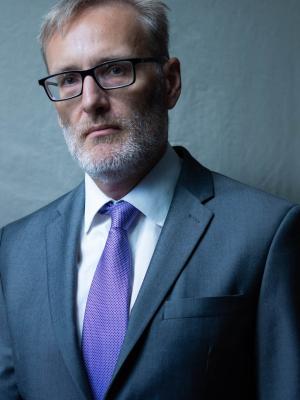We’re Stronger Together
With your help, we can advance education and improve student success in our community.


Vice Chair, Basic Sciences, Biomed Engineering Sci Div, Basic Sciences, Biomed Engineering Sci Div
Program Director, SM-Neurosci, Sys Bio, & Bioengine, MS , Basic Sciences
Program Director, SM-Neurosci, Sys Bio, & Bioengine, PhD , Basic Sciences
Research Professor, Basic Sciences, Biomed Engineering Sci Div
Associate Research Professor, Radiation Medicine
Over the course of my research career, I have evaluated the impact of various components of the spaceflight environment on the immune system. As a graduate student, I focused primarily on the gravitational load and physiological/psychological stress components of this environment. Later, as a post-doc and independent investigator, my focus broadened to include the low-dose/low-dose-rate radiation inherent to solar particle events and galactic cosmic rays. My background as a biomedical engineer gives me a unique perspective in understanding how these physical phenomena can directly influence biological endpoints. All told, I have supported experiments flown on thirteen separate space shuttle missions including those involving rat and mouse models on STS-77, -108, -118, and -135. During this period, I established strong working relationships with the NASA Space Radiation Laboratory (NSRL) at the Brookhaven National Laboratory (BNL), the Ames Research Center (ARC), and the Kennedy Space Center (KSC). Perhaps it is because of my experience in this area that I have come to realize that the immune system does not function in isolation. But rather, immunocytes are in constant communication with the cells and tissues of all other physiological systems. Furthermore, this communication occurs in both locally (in the microenvironment) and systemically (via the blood and sympathetic innervation). Therefore, I believe an integrative, “immuno-physiological” approach is crucial not only within the field of immunology, in general, but in radiobiology, specifically. Given the complex and systemic nature of these responses, it should not be surprising that my work has moved toward transcriptomics, metabolomics and pathway analysis. I have trained three PhD students (with a 4th in my lab now), three post-doctoral fellows, and numerous minority summer students. I frequently co-advise students in other labs and several technicians in my lab have gone on to enter graduate school. Additionally, as Program Director of LLU’s Neuroscience, Systems Biology, and Bioengineering (NSBB) program, I advise all our graduate students regularly. Through these meetings, our classes, and our interactions in the lab, we are committed to promoting Responsible Conduct of Research, Rigor and Reproducibility, and Safety with all of our grad students.
With your help, we can advance education and improve student success in our community.